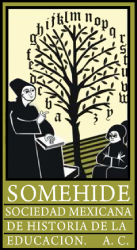The school punishments in the memory of teachers in training
DOI:
https://doi.org/10.29351/amhe.v2i1.315Keywords:
Autobiography, school discipline, teacher training, school novels, educational practiceAbstract
This article results a research of “School memory of people in teacher training institutions”, from which a thesis of Educational Psychology about teacher’s identity derived. In this work, written narratives of students were analyzed, who were both teachers in service and students for a Bachelor of Education, Plan 94, at the Universidad Pedagógica Nacional, Unidad 241. Their grade thesis include “pedagogical novels”, autobiographical writings in which the school histories of each person can be known, from their training processes to their teaching practice. It is important to note that the theses have been forgotten and they are documents that are not widely consulted, so rescuing these writings helps to make the teaching stories visible. Based on a systematization and analysis of written narratives, this work aims to know the experiences about the school discipline that they lived in the classroom as students; what meant that their teachers shouted, scolded, put labels and/or nicknames on them, classified them, segregated them, and were hit with all kinds of objects, to the point of hurting them emotionally and physically. All kinds of violence are found in these narratives, which makes us reflect about the long duration of school discipline, up until the late 20th century, despite the fact that during different moments of history they were forewarned to be erradicated. Therefore, in this work we approach reflection to “the power devices” (Foucault, 2002) used in the practice of school discipline, and the way in which they have remained in the memory of teachers, likewise, to observe psychological and self-reflective processes of teachers when writing these stories.
References
Escolano Benito, A., y Hernández Díaz, J. M. (coords.) (2002). La memoria y el deseo. Cultura de la escuela y educación deseada. Valencia: Tirant Lo Blanch.
Foucault, M. (2002). Vigilar y castigar. Argentina: Siglo XXI.
Maya, J. (2008). Treinta años en la formación de docentes: la oferta educativa de la unidad 241 de UPN. México: Colecciones Haberes y Saberes.
Navarro, J. (2004). Escuela y castigos en niños y adolescentes. Anuario de Filosofía, Psicología y Sociología, (7), 67-94. Recuperado de: https://accedacris.ulpgc.es/bitstream/10553/3687/1/0237190_02004_0004.pdf.
Pimentel, A. (2017). El relato en perspectiva. Estudio de teoría narrativa. México: Siglo XXI/Facultad de Filosofía y Letras.
Pollak, M. (1989). Memoria, olvido, silencio. Estudios Históricos, (3), 3-15. Recuperado de: http://www.comisionporlamemoria.org/static/prensa/jovenesymemoria/bibliografia_web/memorias/Pollak.pdf.
Ramos, N. (2015). La niñez en la educación pública nuevoleonesa (1891-1940). México: Fondo Editorial de Nuevo León/Universidad Autónoma de Nuevo León.
Rangel, A. y Negrete, T. (1995). Proyecto de intervención pedagógica. En Hacia la innovación (pp. 85-95). México: UPN.
Serrano, J. y Ramos, J. (2011). Trayectorias: biografías y prácticas. México: Horizontes Educativos.
Suárez, M. (2002). Historias de vida y fuente oral. Los recuerdos escolares. En A. Escolano Benito y J. M. Hernández Díaz (coords.). La memoria y el deseo. Cultura de la escuela y educación deseada (pp. 108-132). Valencia: Tirant Lo Blanch.
Valle, M., Vega, M., Flores, M., y Muñoz, A. (2014). Los castigos escolares utilizados como técnica para mantener la disciplina en las escuelas mexicanas a partir del siglo XIX. Revista de Educación y Desarrollo, (28), 61-68. Recuperado de: http://saludpublica.cucs.udg.mx/tem/_5T10U85AH.pdf.
Downloads
Published
How to Cite
Issue
Section
License
Todos los contenidos del Anuario Mexicano de Historia de la Educación se publican bajo una licencia Creative Commons Atribución No Comercial 4.0 Internacional (CC BY-NC 4.0), que permite compartir (copiar y redistribuir el material en cualquier medio o formato) y adaptar (remezclar, transformar y construir a partir del material) para fines no comerciales, dando los créditos a los autores y a la revista, tal como lo establece la licencia.
La política de acceso abierto y de licencias con “algunos derechos reservados” no niega la propiedad intelectual ni los derechos de los autores respecto a sus artículos, pues ellos son los titulares, en tanto que el Anuario Mexicano de Historia de la Educación no los reserva para sí ni para la institución editora, ya que se apegan a movimientos de acceso abierto como los Principios y Valores del Sistema de Información Científica Redalyc - Red de Revistas Científicas de América Latina y el Caribe, que pugnan por la eliminación de las políticas de embargo para que el autor retenga los derechos de su obra (principio número 8). Así como las políticas de acceso abierto del Directory of Open Access Journals (DOAJ).
Los autores podrán distribuir su propio material en cualquier otro medio o soporte, siempre y cuando sea para fines no comerciales, informando a los editores que el trabajo será publicado nuevamente y dando el crédito correspondiente al Anuario Mexicano de Historia de la Educación.
La publicación en el Anuario Mexicano de Historia de la Educación, por su carácter gratuito, no da derecho a remuneración económica alguna a los autores, ni a los dictaminadores.
Los lectores podrán reproducir (copiar), comunicar, distribuir o hacer obras derivadas de los artículos o colaboraciones publicados en el Anuario Mexicano de Historia de la Educación en los siguientes casos:
- Para fines públicos.
- Sin fines comerciales.
- Que se reconozca la autoría de la obra y se cite su origen con información completa: Apellido/s del autor, inicial/es del nombre/s. (año de publicación). Título del artículo. Nombre de la revista, volumen (número de ejemplar), página inicial del artículo-página final del artículo. DOI o URL (formato sugerido de acuerdo al estilo APA en su versión más reciente).
El cuerpo editorial del Anuario Mexicano de Historia de la Educación asumirá el compromiso de notificar oportunamente a los autores sobre cualquier cambio de ubicación de los artículos en el sitio (cambio de dirección URL o de conexiones para identificar el artículo).
Los autores, al enviar sus trabajos para su posible publicación, deberán tomar en cuenta los puntos anteriores, mismos que se contemplan en el Acuerdo entre autor y el Anuario Mexicano de Historia de la Educación.












